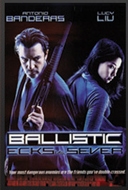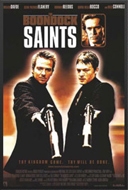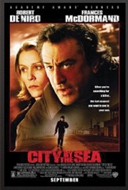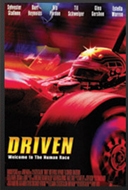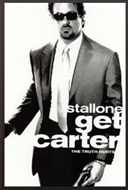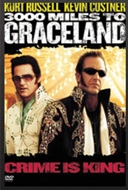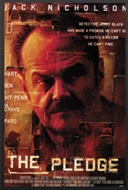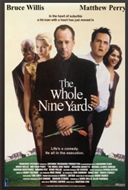Latest News
Announcement: Screenwriting for Profit is to be published in September 2017
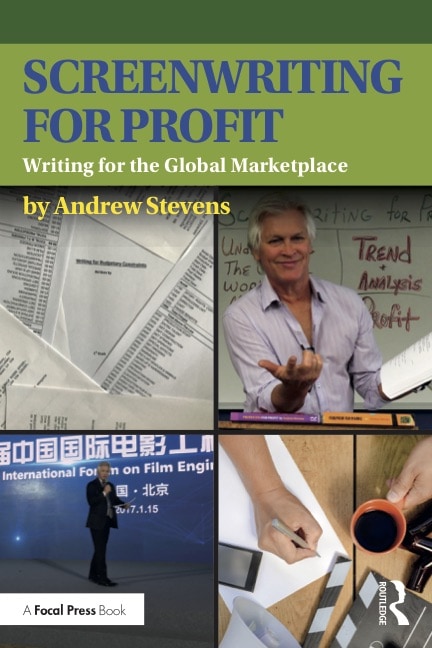 New Book – Available Soon!
New Book – Available Soon!
Screenwriting for Profit is to be published in September 2017 – throughRoutledge/Focal Press. Stay tuned for details!
Read More
Andrew Stevens FoolProof Filmmaking for Independent Filmmakers
It’s 2017, a new year, and no better time to finally get started on making that film you’ve been planning – FoolProof Filmmaking by Andrew Stevens!
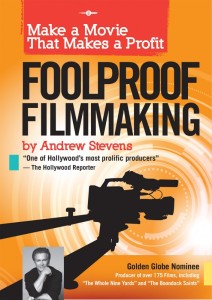 A true independent filmmaker is by my definition, an entrepreneur who is not reliant on a studio or network 40 employment or the ability to make a film.
A true independent filmmaker is by my definition, an entrepreneur who is not reliant on a studio or network 40 employment or the ability to make a film.
An independent entrepreneur must be innovative and explore every possible avenue for the development and financing of an independent film, recognizing the importance of the lucrative foreign market, as well as the realities of the domestic market and potential revenues for a particular film, as well as subsidies, private equity, co-productions, and most often a combination of the above.
Andrew Stevens FoolProof Filmmaking for Independent Filmmakers – this book and film school series give vast detail about global marketplace and how to successfully use critical knowledge to create not only film projects that can get made, but that can also be profitable, leading to a career rather than a job.
Learn more about Andrew Stevens FoolProof Filmmaking for Independent Filmmakers in FoolProof Filmmaking: How To Make A Movie And Make A Profit”
Read More
Producing for Profit: A Practical Guide to Making Independent and Studio Films
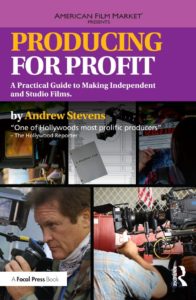 PRODUCING FOR PROFIT: A PRACTICAL GUIDE TO MAKING INDEPENDENT AND STUDIO FILMS (AMERICAN FILM MARKET PRESENTS)
PRODUCING FOR PROFIT: A PRACTICAL GUIDE TO MAKING INDEPENDENT AND STUDIO FILMS (AMERICAN FILM MARKET PRESENTS)
In Producing for Profit: A Practical Guide to Making Independent and Studio Films, Andrew Stevens provides real-world examples and his own proven techniques for success that can turn passion into profit. Far more than just theory, the book outlines practical applications that filmmakers of all levels can use to succeed in today’s ever-changing marketplace.
Readers will learn how to develop screenplays that are commercial, and how to negotiate, finance, cast, produce, sell, distribute, and market a film that will make a profit. The book contains numerous examples from the author’s own films, including sample budgets, schedules, and a variety of industry-standard contracts.
This is the definitive book that every producer must have! Go Here to Learn More…
Read More
Announcement: Southern Methodist University Film Class
 Foolproof Filmmaking has been added as a textbook to Southern Methodist University film class, for the fall semester.
Foolproof Filmmaking has been added as a textbook to Southern Methodist University film class, for the fall semester.
Read More
Andrew Stevens FoolProof Filmmaking for Actors
Most actors have heretofore been naïve about the entertainment business, the way the business really works, and how it affects them as performers. They have often intentionally been kept in the dark, even by their own union, as to how they, individually, as a key component of the industry, can harness their own power and become more effective and more successful.
Unions are big business, which employee many high salaried people, both on the union side and on the side of their pension plans, which is the cash cow that they care most about at the expense of their members.
Actors have also been known to be notoriously insecure, with their agents as their sole lifeline to the business and their livelihood. Hence, the proliferation of personal managers who work on percentages, attorneys who work on percentages, and business managers working on percentages, praying on the insecurities of actors, the majority of them treat actors like incompetent children.
Andrew Stevens FoolProof Filmmaking for Actors, this book and film school series pulls back the veil and demystifies the business exposing it for how it really works.
It is essential for actors to understand not just their creative craft, but how the business side of the business works and how, with that understanding, they can be more effective in controlling their own destinies and their own livelihood.
Learn more in FoolProof Filmmaking: How To Make A Movie And Make A Profit
Read More
Andrew Stevens FoolProof Filmmaking for Independent Filmmakers
FoolProof Filmmaking Independent Filmmakers Andrew Stevens FoolProof Filmmaking for Independent Filmmakers. A true independent filmmaker, is by my definition, an entrepreneur who is not reliant on a studio or network 40 employment or the ability to make a film.
An independent entrepreneur must be innovative and explore every possible avenue for the development and financing of an independent film, recognizing the importance of the lucrative foreign market, as well as the realities of the domestic market and potential revenues for a particular film, as well as subsidies, private equity, co-productions, and most often a combination of the above.
Andrew Stevens FoolProof Filmmaking for Independent Filmmakers – this book and film school series give vast detail on the global marketplace and how to successfully use critical knowledge to create not only film projects that can get made, but that can also be profitable, leading to a career rather than a job.
Learn more about Andrew Stevens FoolProof Filmmaking for Independent Filmmakers in FoolProof Filmmaking: How To Make A Movie And Make A Profit
Read More
Andrew Stevens FoolProof Filmmaking for Actors
Most actors have heretofore been naïve about the entertainment business, the way the business really works, and how it affects them as performers. They have often intentionally been kept in the dark, even by their own union, as to how they, individually, as a key component of the industry, can harness their own power and become more effective and more successful.
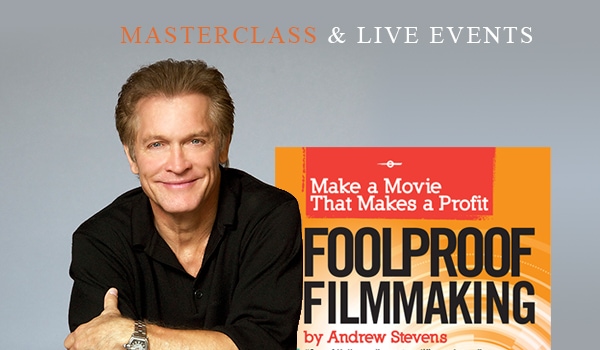
Unions are big businesses, which employ many high salaried people, both on the union side and on the side of their pension plans, which is the cash cow that they care most about at the expense of their members.
Actors have also been known to be notoriously insecure with their agents as their sole lifeline to the business and their livelihood. Hence, the proliferation of personal managers who work on percentages, attorneys who work on percentages, and business managers working on percentages, praying on the insecurities of actors, the majority of them treat actors like incompetent children.
Andrew Stevens FoolProof Filmmaking for Actors, this book and film school series pulls back the veil and demystifies the business exposing it for how it really works.
It is essential for actors to understand not just their creative craft, but how the business side of the business works and how, with that understanding, they can be more effective in controlling their own destinies and their own livelihood.
Learn more in FoolProof Filmmaking: How To Make A Movie And Make A Profit
Read More
How FoolProof Filmmaking benefits Screenwriters: The Art of Presenting, Selling and Closing Deals.
 There are many great teachers for story structure and screenplay structure such as Trubee, McKee, and the late Syd Field. They teach act structure, character arcs, twists, archetypes, and a multitude of other very valid structural observations and techniques.
There are many great teachers for story structure and screenplay structure such as Trubee, McKee, and the late Syd Field. They teach act structure, character arcs, twists, archetypes, and a multitude of other very valid structural observations and techniques.
Read More
FoolProof Filmmaking : Business of Film
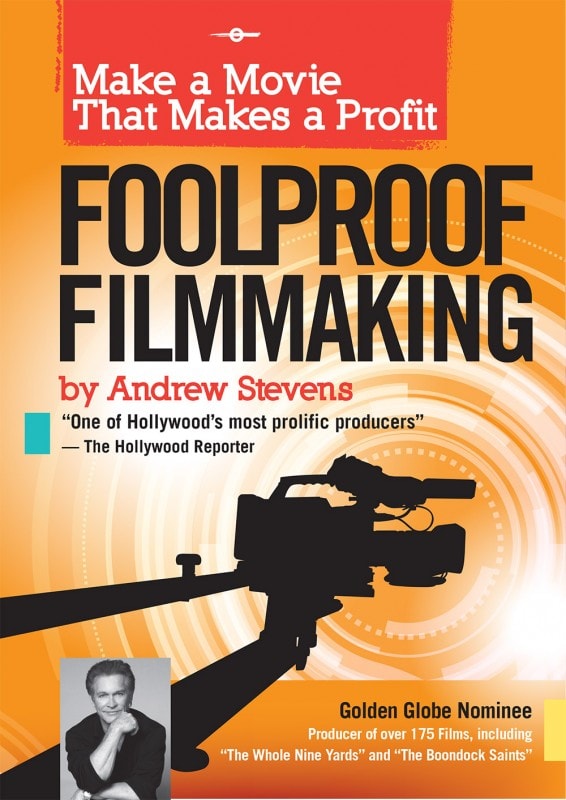 In Andrew Stevens’ previous film companies, he haven’t had as many as 70 full-time employees, in addition to the hundreds of employees per individual film times the number of films are produced within any given year.
In Andrew Stevens’ previous film companies, he haven’t had as many as 70 full-time employees, in addition to the hundreds of employees per individual film times the number of films are produced within any given year.
His book gives a clear illustration of how the film business, a global import export business, actually works, and illustrates the multitudinous opportunities for business persons who have an interest in filmed entertainment.
Film companies, particularly those that are active in the international market as well as the domestic market, have a necessity many executives who are highly specialized CEOs, presidents, COOs, CFOs, legal counsel, business affairs, publicity and marketing executives, international sales executive who travel and attend Film markets all over the world, executives who are skilled and specialized in banking, the required documentation to facilitate bank loans using presale contracts as collateral, as well as completion bonds, delivery and servicing executives, Accounting executives, collection executives, HR executives as well as creative and development executives.
Andrew Steven’s FoolProof Filmmaking book and film school series touch on many of these areas of opportunity and goes into great detail about how the business side of the business actually works in today’s global marketplace.
Read More
An excerpt from my new book “Screenwriting for Profit”
An excerpt from my new book “Screenwriting for Profit” releasing later this year.
 The Syd Field Paradigm
The Syd Field Paradigm
In his book Screenplay the Foundations of Screenwriting, first published in 1979, Syd Field introduced his Paradigm, and over-laid it onto the classic three act structure. He articulated the notion of plot points, which he defined as “any incident, episode, or event, that hooks into the action and spins it around in another direction” and he noticed that these plot points occurred in roughly the same place in many classic as well as contemporary films that were successful. He stated that “the plot point is a function of the main character” and “the purpose of the plot point is to move the story forward, toward the resolution”, and that “it amps up the action and underscores the arc of the character”.
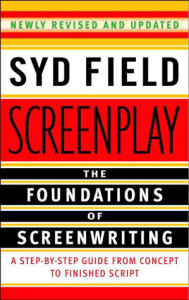 Field posed that the first plot point should occur at the end of act one and, in my words, is an unexpected dramatic event that has a profound effect on the main character and spins the action in a different direction. He placed the second plot point at the end of the second act, which is a powerful turnaround, setback or reversal of fortune that propels the main character and the action towards the confrontation and resolution. He also cited what I call the second act doldrums, and to counteract the picture bogging down in a tediously long 120 page format, and a second act that was twice as long as acts one and two, he inserted the concept of a mid-point into the middle of the second act. The mid-point is a critical scene in the middle of the second act, where a revelation or turn of events can send the main character and or the story into a change of direction.
Field posed that the first plot point should occur at the end of act one and, in my words, is an unexpected dramatic event that has a profound effect on the main character and spins the action in a different direction. He placed the second plot point at the end of the second act, which is a powerful turnaround, setback or reversal of fortune that propels the main character and the action towards the confrontation and resolution. He also cited what I call the second act doldrums, and to counteract the picture bogging down in a tediously long 120 page format, and a second act that was twice as long as acts one and two, he inserted the concept of a mid-point into the middle of the second act. The mid-point is a critical scene in the middle of the second act, where a revelation or turn of events can send the main character and or the story into a change of direction.
By the late 1970’s and early 1980’s, I had written several scripts and many stories for screenplays which I had pitched and not sold. I was instinctively implementing the three act structure with what we called at the time, twists at the end of the first and second acts. Around this time, a friend of mine and went to a weekend seminar with Syd Field, at which I also bought his book. I learned about his concept of plot points, which I called twists, and also his concept of a mid-point event which I began to incorporate into the structural foundation of my scripts.
Be the first to know when my book is released and sign up for our newsletter below.
Read More

